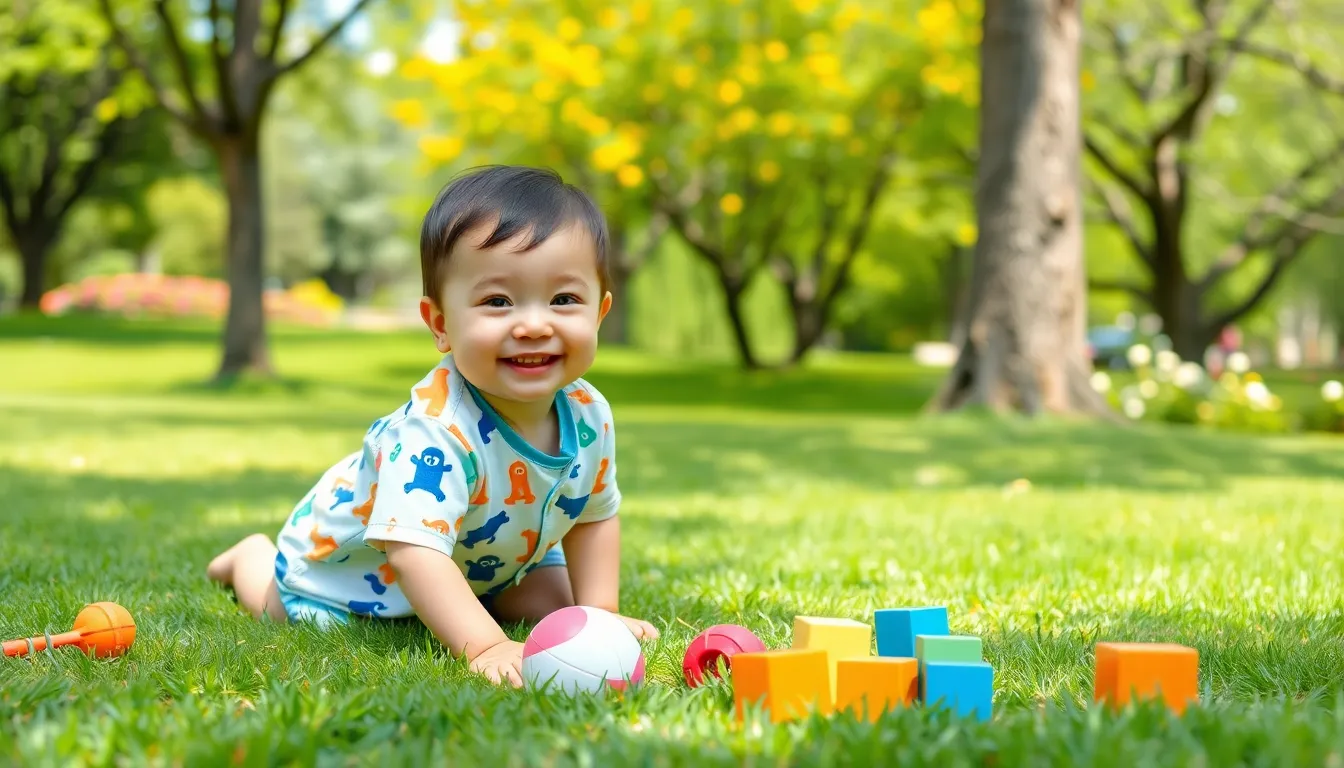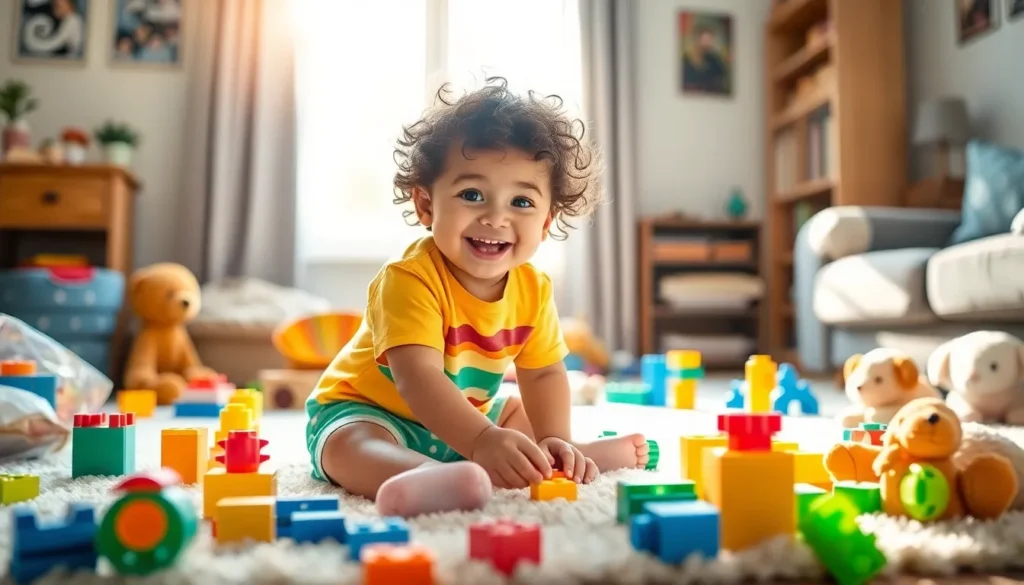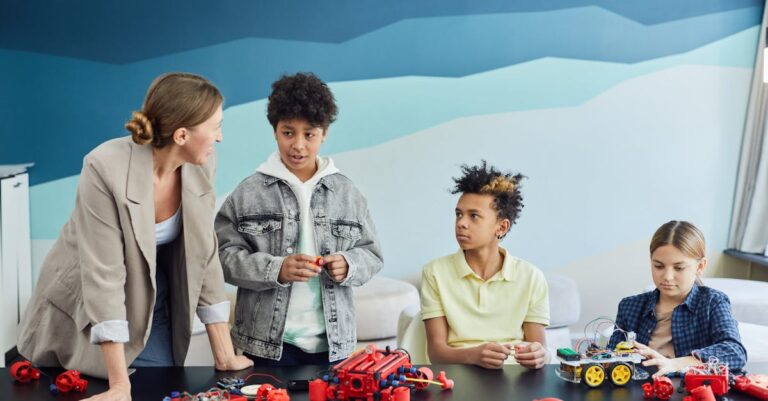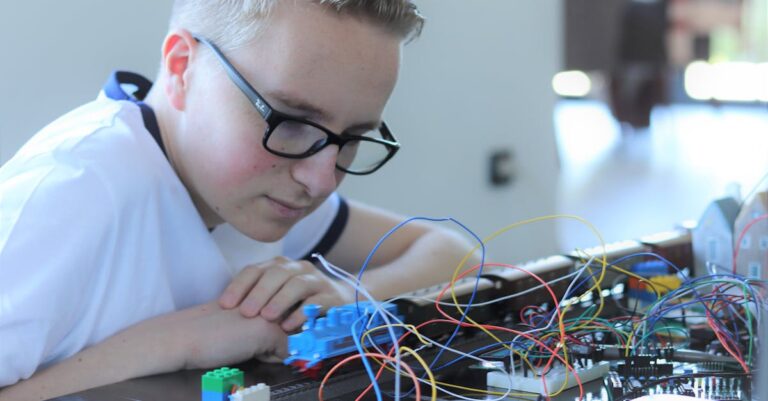Toddlers are like tiny adventurers on a mission to uncover the mysteries of the universe—one crayon at a time. With boundless energy and an insatiable curiosity, they dive into every nook and cranny, turning the living room into a jungle and the kitchen into a science lab. Who knew a cardboard box could be a spaceship?
Table of Contents
ToggleUnderstanding Toddler Exploration
Toddler exploration plays a crucial role in early child development. Engaging with their surroundings helps nurture cognitive, emotional, and social skills.
Importance of Exploration in Early Development
Exploration stimulates brain development, enhancing problem-solving abilities. Curiosity leads to active participation, fostering creativity in toddlers. Interaction with objects and their environment facilitates learning through hands-on experiences. These experiences encourage children to form connections between concepts, leading to better retention of information. Social skills also improve as toddlers interact with peers, sharing discoveries and collaborating during play. Overall, exploration serves as the foundation for lifelong learning.
Stages of Toddler Exploration
Toddler exploration consists of various stages reflecting their growth. Initially, infants exhibit sensorimotor exploration, using their senses to understand the world. As they grow, toddlers engage in more complex social play, joining peers for collaborative adventures. Next, imaginative play emerges, where everyday scenarios transform into creative experiences. Lastly, toddlers begin to express independence, seeking new environments for exploration. Each stage contributes to their understanding of the world, fostering confidence and curiosity.
Types of Toddler Exploration

Toddlers explore in diverse ways, each type enhancing their development in unique manners. Two primary forms of exploration include physical exploration and cognitive exploration.
Physical Exploration
Physical exploration involves toddlers actively engaging with their environment through movement and manipulation. They crawl, walk, climb, and run, testing their physical limits. This exploration strengthens their motor skills and builds coordination. Objects become tools for discovery; toddlers pick up, drop, or throw items to observe reactions. Outdoor settings offer additional opportunities, as they interact with nature, feeling textures and observing changes. New challenges encourage confidence, fueling their desire to explore further. Each physical venture contributes to a robust understanding of spatial relationships.
Cognitive Exploration
Cognitive exploration focuses on toddlers’ mental engagement with their surroundings. Curiosity drives them to ask questions and seek answers about how things work. Engaging in problem-solving games sharpens their critical thinking skills. Everyday events, such as cooking or gardening, become learning experiences as they connect ideas with real-world applications. Books and storytelling stimulate imagination, expanding their understanding of narratives. Social interactions with peers further enhance cognitive growth, as they learn to navigate relationships and share knowledge. Every cognitive challenge they face fosters creativity and lays the groundwork for lifelong learning.
Encouraging Safe Toddler Exploration
Fostering safe toddler exploration involves creating environments that encourage curiosity while minimizing risks. Ensuring safety allows toddlers to engage freely in their surroundings.
Creating a Safe Environment
Establishing a safe environment requires careful evaluation of spaces. Remove sharp objects, choking hazards, and any toxic substances. Furniture should be sturdy and free of sharp edges. Designate specific areas for exploration, such as padded play zones. Secure cabinets and drawers to prevent access to harmful items. Furnish these areas with age-appropriate toys that stimulate creativity. Outdoors, ensure the yard is fenced and free from sharp objects or harmful plants. Regularly inspect play equipment to maintain safety standards. A thoughtfully prepared space promotes confidence and encourages independence during exploration.
Supervision and Guidance
Active supervision plays a vital role in toddler exploration. Stay within close proximity while allowing toddlers to discover. Encourage exploration by providing gentle guidance and verbal cues. Be ready to intervene when dangerous situations arise. Promoting problem-solving skills while ensuring safety benefits emotional development. Engage in activities alongside toddlers to enhance their learning experiences. Observing their interactions with peers builds social skills. Offering praise and support reinforces positive behavior, fostering a sense of security. With appropriate supervision, toddlers feel free to explore and learn from their environment.
Activities to Promote Toddler Exploration
Promoting toddler exploration through active, hands-on activities fosters creativity and learning. Engaging toddlers in various settings enhances their development and understanding of the world.
Outdoor Exploration Activities
Exploring nature provides unique learning experiences. Toddlers can collect leaves, rocks, or flowers, discovering different textures and colors. Setting up a scavenger hunt encourages observation skills and critical thinking. Creating a safe play area for climbing or jumping strengthens physical skills, while encouraging interaction with peers fosters social development. Visiting parks offers a chance to explore diverse environments, providing opportunities for imaginative play like building forts or playing hide-and-seek. Engaging in gardening allows toddlers to learn about plant growth and responsibility, enhancing their connection to nature.
Indoor Exploration Ideas
Indoor environments also serve as rich exploration spaces. Creating a sensory bin filled with rice, beans, or water invites toddlers to experiment and engage their senses. Using everyday household items, like cardboard boxes, can inspire creative play, allowing them to build and imagine. Reading books together enables cognitive exploration, prompting questions and discussions. Setting up art stations with paints and crafts supports fine motor development while encouraging self-expression. Playing with puzzles enhances problem-solving skills and critical thinking. Incorporating role-play scenarios fosters social interaction and imaginative thinking, effectively promoting collaborative skills and creativity.
Toddler exploration is a vital aspect of early development that shapes a child’s understanding of the world. By encouraging curiosity and creativity, caregivers can foster a rich environment for learning. Physical and cognitive explorations play crucial roles in enhancing motor skills and problem-solving abilities.
Creating safe spaces for exploration allows toddlers to engage with their surroundings confidently. Thoughtful supervision and interactive activities not only boost their independence but also strengthen social bonds. As toddlers embark on their adventures, they lay the groundwork for a lifetime of learning and discovery.






